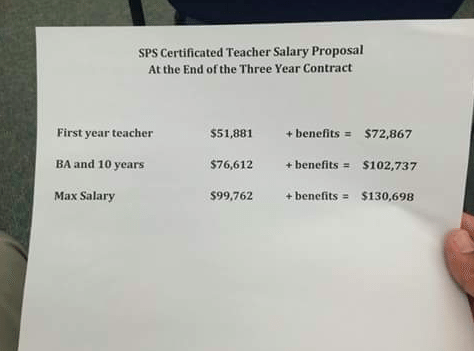Socialist Seattle City Council member Kshama Sawant decided to she would show her symbolic support for the teachers’ union illegal strike (which mayhopefully end this Thursday) by introducing a resolution acknowledges September 14-18 as Seattle Educators Week. As could be expected for something that allows Seattle politicians to pander to union bosses while not actually having to do anything, the council passed the resolution unanimously.
Never one to shy away from extreme, melodramatic rhetoric, Sawant declared, “Over the past decades public education has come under ferocious assault by successive Republican and Democratic administrations across the country. Public schools have been deeply underfunded and teachers have been pushed to increasingly focus on standardized testing. There has been an attempt to dismantle public education, first with vouchers, and now with charter schools.”
Sawant went on to state that a union victory would be a “huge step forward for the students and educators who make up Seattle Public Schools.” She also said that a “a victory for the union” would be “a victory for education across the country” because it would show that “we can resist attacks on public education.”
According to MyNorthwest.com, Sawant donated $500 to help fund the strike and encouraged her fellow council member to follow suit. No word yet if Sawant plans to assist the Seattle School District in covering the hefty cost of the illegal strike$100,000 per day in taxpayers’ hard-earned dollars to be exact.
Just to be clear, this is the type of “ferocious assault” Seattle teachers have endured at the hands of the school district. Check out the pay increase offer union executives rejected over the weekend,





